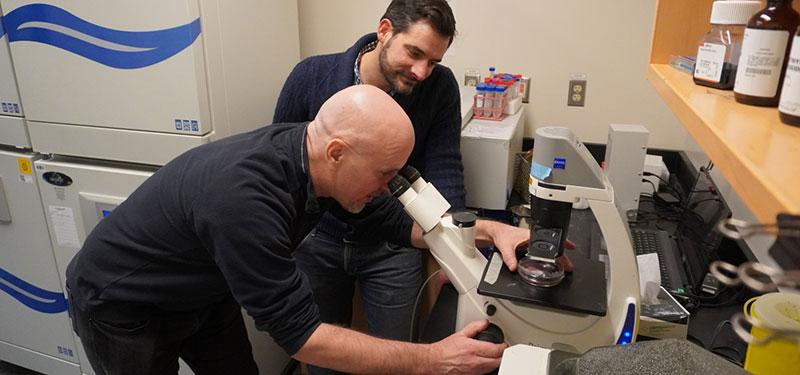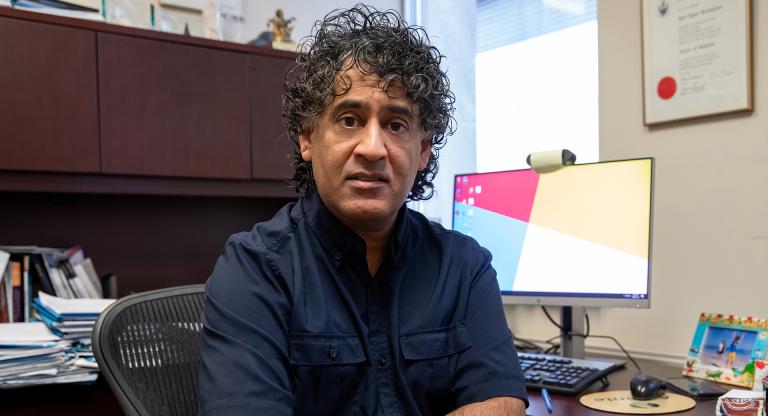Sinai Health researchers awarded grant to fight vision loss

Two Sinai Health scientists have their eyes set on a new prize.
Researchers Rod Bremner and Daniel Schramek have a vision to discover what’s behind one of the most common inherited causes for vision loss – retinitis pigmentosa – and to prevent that loss from occurring.
The two are now even closer to that goal, thanks to new grant support from Fighting Blindness Canada.
Bremner and Schramek, investigators at Sinai Health’s Lunenfeld-Tanenbaum Research Institute, were recently awarded a $300,000 grant for their research into retinitis pigmentosa, or RP.
“We’re honored to be selected by Fighting Blindness Canada and commend their dedication to finding new treatments for blinding eye diseases,” Bremner said. “We put enormous effort into building the key elements for this project and we are delighted all the hard work has been recognized.”
Retinitis pigmentosa, or RP, is one of the most common inherited retinal diseases. People living with RP experience gradual vision loss caused by the death of light sensing cells in the retina called photoreceptors.
While the condition is classified as a rare disease, RP is one of the most common inherited diseases of the retina, affecting between approximately one in 4,000 Canadians.
There is currently no cure for RP. Once photoreceptor cells start to die, a person’s vision will continue to get worse. Drs. Bremner and Schramek are trying to find ways to stop photoreceptor cell death.
The team will identify proteins that are causing the cell to die, and then use drugs to stop this from happening, so that more photoreceptor cells survive.
Previously, it could have taken years to identify even one protein as a potential drug target. The team at LTRI is using an innovative new technology that lets them study almost 800 proteins at the same time, which should speed up the chance of finding a new treatment for RP.
“Drs. Bremner’s and Schramek’s work could radically transform our understanding of the biological networks that underpin photoreceptor loss in RP,” said Dr. Larissa Moniz, director of research and mission programs at Fighting Blindness Canada. “Identifying a strategy to address one or more factors could lead to better treatments and improved quality of life for Canadians living with this disease.”
Bremner said their immediate plans are to begin building the tools needed to screen genes that encode proteins for which drugs are already available. He believes it provides the fastest route to the clinic, as it would allow them to prioritize drugs that are already safe for use in humans.
About Finding Blindness Canada
Fighting Blindness Canada is the largest private charitable funder of vision research in Canada. Over its 45-year history, it has invested more than $40 million to support vision research and education across Canada. It offers hope to Canadians by identifying the best, most promising research that is driving treatments and cures for blinding eye diseases, and by raising and stewarding funds to support essential, sight-saving research.
About LTRI
The Lunenfeld-Tanenbaum Research Institute, or LTRI, is one of the world’s top biomedical research institutes, powering scientific discovery for almost 35 years. At its core, LTRI creates the perfect storm of creativity, curiosity and observation for the investigation of medicine’s most important questions. It is comprised of 34 highly collaborative labs with cutting-edge facilities, 118 researchers, 250 trainees and more than 500 staff.












